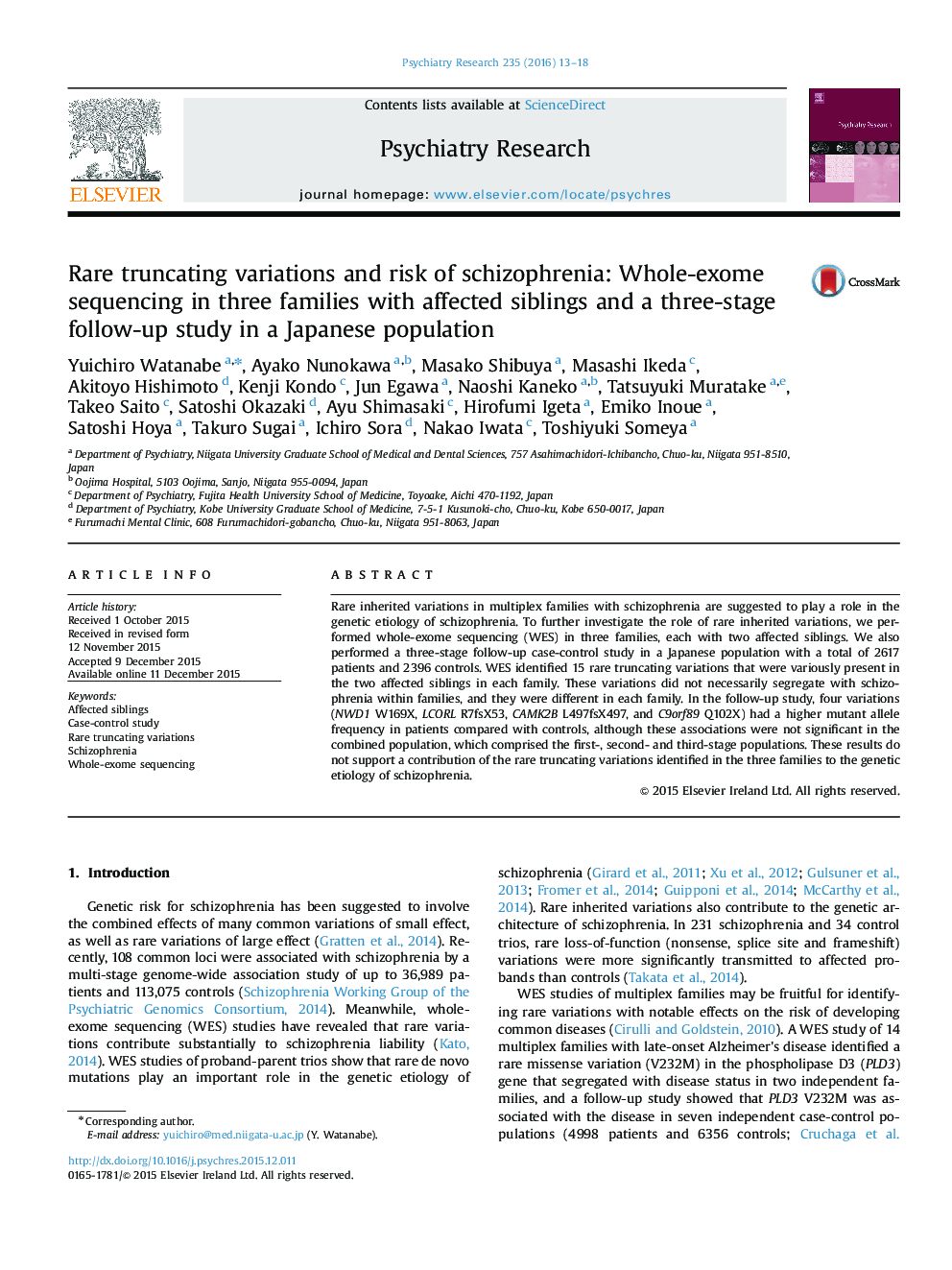| Article ID | Journal | Published Year | Pages | File Type |
|---|---|---|---|---|
| 333193 | Psychiatry Research | 2016 | 6 Pages |
•We performed whole-exome sequencing in three families with schizophrenia siblings.•WES identified 15 rare truncating variations as risk candidates for schizophrenia.•We also performed a follow-up study in 2617 patients and 2396 controls.•There were no significant associations of truncating variations with schizophrenia.
Rare inherited variations in multiplex families with schizophrenia are suggested to play a role in the genetic etiology of schizophrenia. To further investigate the role of rare inherited variations, we performed whole-exome sequencing (WES) in three families, each with two affected siblings. We also performed a three-stage follow-up case-control study in a Japanese population with a total of 2617 patients and 2396 controls. WES identified 15 rare truncating variations that were variously present in the two affected siblings in each family. These variations did not necessarily segregate with schizophrenia within families, and they were different in each family. In the follow-up study, four variations (NWD1 W169X, LCORL R7fsX53, CAMK2B L497fsX497, and C9orf89 Q102X) had a higher mutant allele frequency in patients compared with controls, although these associations were not significant in the combined population, which comprised the first-, second- and third-stage populations. These results do not support a contribution of the rare truncating variations identified in the three families to the genetic etiology of schizophrenia.
